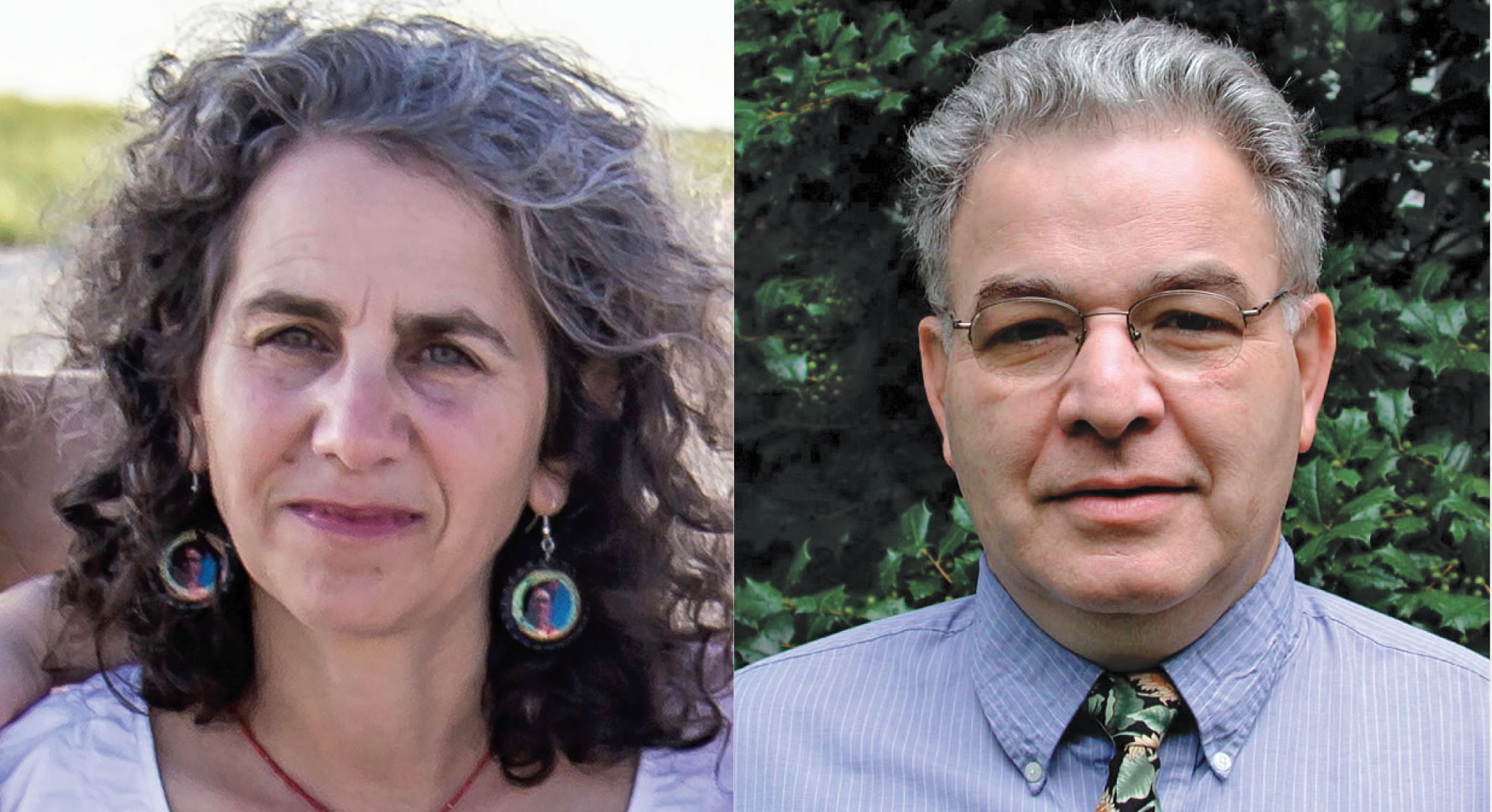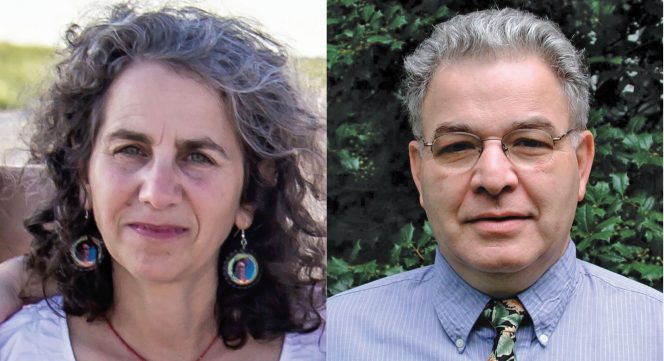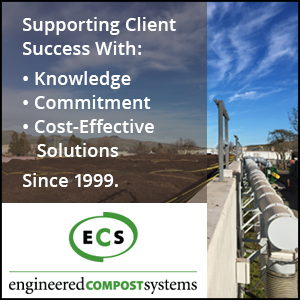BioCycle August 2019
Brenda Platt and Neil Seldman, Institute for Local Self-Reliance

Brenda Platt, Director, Composting for Community Project, was two weeks out of college in 1986 when she was offered a job as an assistant to Neil Seldman at the Institute for Local Self-Reliance (ILSR) in Washington, D.C. A graduate of George Washington University with a degree in Mechanical Engineering, Platt recalls Seldman calling her the “staff engineer,” which made her nervous. “I hadn’t really ever worked as an engineer,” she recalls. “Neil was both my biggest fan and most awesome mentor. He had me testifying at public hearings against incinerators within my first weeks at the Institute.”
Battling proposed incinerators was a major part of Platt’s job in the early years, along with researching and disseminating information on cities and counties with the highest recycling levels. Her groundbreaking research on record-setting communities helped institutionalize curbside recycling, including yard trimmings composting programs. She was the first to demonstrate beyond 25 percent recycling was possible, followed by 40 percent and then 50 percent. Platt wrote the first national Zero Waste agenda for action and was an early voice for Zero Waste planning.
The Institute was also a pioneer in connecting recycling with local economic development opportunities and jobs. Platt’s research comparing landfill and incinerator jobs with materials recovery jobs put real numbers behind the vision. Over many years, she documented jobs through electronics reuse, pallet repair, textiles recycling, recycled paper mills, recyclables sorting, composting, and more. “The largest economic payoff in the recycling loop comes from making finished products from the old,” notes Platt. For organics recyclers, she laid out the data in her 2013 report, Pay Dirt: Composting in Maryland to Reduce Waste, Create Jobs & Protect the Bay. “We found that composting sustains four times more jobs than landfill disposal on a per ton basis,” says Platt. “Pay Dirt found that businesses that use compost for storm water management, green roofs, rains gardens, and erosion and sediment control employ even more people on a per ton basis.”
Closing the loop locally has guided Platt in all of her work at ILSR, first with recycling and then organics recycling. She is the nation’s leading advocate for community composting — recycling food scraps and other organics at neighborhood composting sites, community gardens and urban farms, and at home. Throughout her career, Platt has documented best practices of early adopters, sharing lessons learned and tips for replication. “My work will never be done,” jokes Platt.“So many model programs to discover and introduce to others!”
Samples of Platt’s reports
Neil Seldman, President of ILSR, recalls he first became aware of recycling as a “distinct” idea when working in factory and wholesale/retail business at a young age and was immediately assaulted by all the materials being wasted on a daily basis. “I started recycling a few things that were being discarded — carbon paper, metal, and glass,” he recalled in an interview with the Recycling Archives Project (an initiative of Urban Ore and ILSR). “When I got involved in local self-reliance after college and graduate school, I was asked to investigate how a community can increase recycling and expand it into an enterprise. I helped start the first drop off recycling depot in Washington, D.C. for newsprint and aluminum cans. The enterprise lasted for about 5 years until curbside recycling was implemented.”
The Institute was co-founded by Seldman in 1974 to focus on energy, waste and urban agriculture. The goal was to make the District of Columbia’s Adams Morgan neighborhood of 25,000 residents, where ILSR’s office was located, self-reliant. Seldman was assigned recycling as he had prior business experience. He was one of the earliest authors of articles on recycling in Compost Science (BioCycle’s predecessor), starting in the 1970s. “It was clear even by 1974 that recycling could become a social movement because these materials were under direct control by the city, and citizens could help make the new rules that favored recycling rather than wasteful disposal,” explains Seldman. “In the late 1970s, recycling became very interesting as proposals for large (1,000-10,000 tons/day) incinerators were proposed for every large city and county in the U.S. ILSR became the sole resource for communities trying to fight these facilities. I made about 500 trips to cities across the U.S. from the late 1970s to 1995, when the first incinerator phase came to an end. About 290 plants were defeated across the U.S.”
After 1995, Seldman’s work focused mostly on helping to start and expand recycling, reuse and composting companies — and provide technical assistance to cities that rejected incineration. “The hardest thing to do in recycling is to start recycling,” he notes. “Then common sense and entrepreneurship take over. Thus organized groups in one city planted an idea in other cities and sprouts emerged immediately.” Seldman continues to help cities and counties phase out incineration, recover more materials from the waste stream, and add value to the local economy by adding value to materials through processing, repair and manufacturing.
Seldman has been active in local and national organizational development. He cofounded the National Recycling Coalition (1980), Grass Roots Recycling Network (1995), Zero Waste International Alliance (2000) and the Save the Albatross Coalition (2015). He serves as advisor to numerous local recycling, Zero Waste and anti incineration organizations. He helped the U.S. recycling, Zero Waste and anti-incineration movements come together to form a formidable foundation for solving the ‘Waste Knot’ the U.S. is trying to untie in 2019.
— Nora Goldstein, BioCycle
Continue reading















